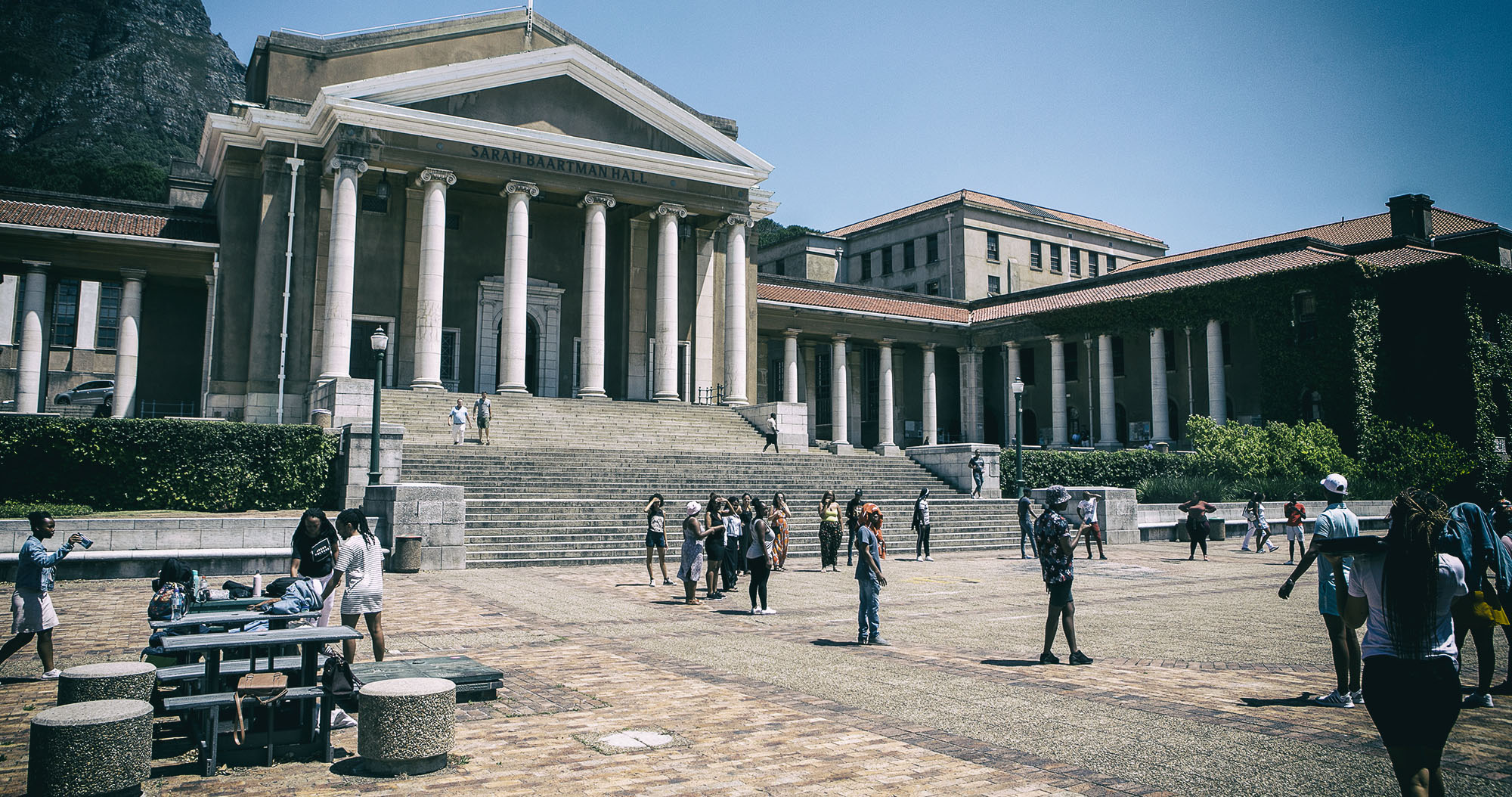Read Part One here.
As members of the University of Cape Town (UCT) community debate whether it would be appropriate to introduce a Covid-19 vaccine mandate for all staff and students not exempted on medical or constitutional grounds, the question of whether this would be constitutionally permissible looms large. In this second of two articles I explain why such a mandate will limit the right to freedom and security of the person, but would almost certainly pass constitutional muster. I also explain why the Occupational Health and Safety Act, read with the relevant provisions of Covid-19 regulations issued in terms of the Disaster Management Act provide legal authority for such a move.
Section 12(2)(b) of the Bill of Rights states: “Everyone has the right to bodily and psychological integrity, which includes the right to security in and control over their body.” This section protects the right of “everyone” to make informed decisions concerning their own bodies without undue interference from others.
While a policy requiring all (non-exempted) staff and students to be vaccinated will not directly coerce anyone to get vaccinated, it will present individuals who are not keen to be vaccinated with a difficult choice and would therefore interfere with their right freely to make decisions about their own bodies. This raises an important constitutional question, namely whether this limitation on the Section 12(2)(b) right would be reasonable and justifiable (and therefore constitutionally compliant) in terms of Section 36 of the Constitution.
I have previously explained, as have other human rights lawyers, why carefully tailored vaccine mandates would, in many contexts, constitute a justifiable limitation on the right to bodily integrity guaranteed in Section 12(2) of the Bill of Rights. I develop the argument here by focusing specifically on the limitation of this right in the university context. (Contexts differ and it may be necessary to deal differently with a workplace where employees do not engage with the public and work mostly outside, than with a university with thousands of staff and students who congregate in large venues for their lectures.)
Section 36 of the Constitution requires a weighing-up of competing interests when deciding whether a limitation of the right to bodily integrity is justifiable or not. On the one hand, one must consider the interests of staff and students whose right to bodily integrity will be limited by a vaccine mandate. The more drastic the limitation of the right, the less likely that the limitation would be justified. (Which is one of the reasons why the Constitutional Court held, in one of its first judgments, that the death penalty was unconstitutional.)
On the other hand, one has to weigh this against the interests of the broader university community, and of the society it serves, by asking three questions:
- How important is the purpose of the envisaged measure?
- How likely is it that the measure will achieve its purpose?
- Are other effective but less invasive measures available to achieve the same purpose?
The more important the purpose of the measure and the more effective it is likely to be, the more likely that the limitation would be constitutionally justified.
The majority judgment of the Constitutional Court in Prince v President of the Law Society of the Cape of Good Hope provides a good illustration of how this test is applied. In that case the court had to decide whether the law prohibiting Rastafarians from possession and using cannabis – a central tenet of their religion – constituted an unjustified limitation of their right to religious freedom. The majority held that while this limited the right to freedom of religion, the limitation was justified in terms of Section 36 of the Constitution.
Controversially, the court accepted that the legislation “served an important governmental purpose in the war against drugs” and held that granting an exception to Rastafarians would “impair the state’s ability to enforce its legislation in the interests of the public at large and to honour its international obligation to do so”. It therefore held that despite the severe limitation on the religious rights of Rastafarians, the limitation was reasonable and justifiable.
In a subsequent judgment, decided 18 years later, the court held, in Minister of Justice and Constitutional Development and Others v Prince, that the cannabis prohibition unjustifiably limited the right to privacy. In doing so, the Constitutional Court downplayed the importance of the purpose served by the cannabis prohibition, noting that medical evidence suggests that “one joint of dagga or even a few joints will not cause any harm”. This example illustrates that even relatively severe limitations on rights might be justified in terms of the limitation clause if the purpose of the limitation is sufficiently important and if practical and effective alternatives to achieve the purpose are not available.
It cannot be gainsaid that the imposition of a tailored vaccine mandate at a university will serve a variety of (extremely important) purposes, including reducing the frequency and severity of Covid-19 infections and preventing related deaths, and supporting the orderly and safe return to campus of all staff and students, thereby enhancing the education of students. Which leaves us with the question of whether the envisaged measure would impose such an unprecedented and extreme limitation on the right to bodily integrity that it could not be constitutionally justified.
This is a pivotal question, as our courts are reluctant to accept that a drastic limitation of an individual’s right is justifiable because the state or some other powerful institution claims that the limitation is for the greater good of everybody in society (although it did so in the first Prince judgment mentioned above). But because of the emergence of often sincerely held (but sometimes also manufactured) anxieties about Covid-19 vaccines, some opponents of vaccine mandates in a university context may be overestimating the severity of the limitation because they may be unaware of the kinds of limitations already provided for by legislation and approved by our courts.
When assessing the severity of the proposed limitation, it is therefore instructive to look at some of the other ways in which the law already allows for the limitation of the right to bodily integrity. A 2016 article by A Nienaber and KN Bailey in the South African Journal of Bioethics and Law provides some examples of such (often drastic) limitations, to which I added a few others. These include:
- In S v Orrie the high court held that Section 37(3)(a)-(b) of the Criminal Procedure Act, authorising the taking of a blood sample from an accused in order to determine the state of that accused’s health or for the purposes of compiling a DNA profile was a justifiable limitation on the right to bodily integrity. It did so despite the fact that the provision allows for the reasonable use of force to ensure compliance from an accused.
- Section 30 of the Criminal Law (Sexual Offences and Related Matters) Amendment Act allows a victim of a sexual offence to seek a court order compelling the alleged offender to undergo HIV testing and to allow the results of such a test to be disclosed to the victim. The consent of the alleged offender is not required despite the fact that this provision represents an infringement of the right to bodily integrity of the offender. An offender who refuses to consent to the taking of samples is guilty of an offence punishable by a fine or imprisonment of not more than three years.
- The high court in Minister of Health v Goliath relied on Section 7(1)(d) of the National Health Act, which allows for the forced treatment of a patient where a failure to treat the patient (or group of patients) would lead to a serious public health or safety risk, to order the detention of contagious XDR-TB patients in a specialist tuberculosis hospital to receive treatment. The court held that although this limited their Section 12 rights, this was necessary and constitutionally justified.
- In Life Healthcare Group and Another v JMS and Another, the high court allowed medical personnel to administer a blood transfusion for a minor child, despite the religious objections of the child’s Jehovah’s Witness parents, pointing out that the parents’ “right to religion is not unfettered, that the right to life is an inviolable right and to the extent that the parents’ right potentially violates the child’s right to life, it is in the best interest of the child that the child’s right to life” trumps the parent’s right.
- Lastly, Section 2 of the Choice on Termination of Pregnancy Act limits the right of everyone to make decisions concerning reproduction, as it limits the circumstances in which (and conditions under which) pregnancy may be terminated.
Clearly, some of the examples provided above provide for drastic (and uncomfortably harsh) limitations on the right to bodily integrity. Whether one agrees with all these limitations or not, I provide them to illustrate that requiring (non-exempted) staff and students at a university to show proof of Covid-19 vaccination may not – in the eyes of the law – be nearly as drastic as some people might believe.
Given the variety of (extremely important) purposes served by the imposition of such a vaccine mandate at a university, our courts are therefore very likely to hold that the limitation imposed on the right to bodily integrity was reasonable and justifiable, given the pointed but not drastic nature of the limitation. As recommended by the Senate motion, such a system would also have to provide for rule-based exemptions on medical and constitutional grounds to ensure the limitation of rights restrict the right as little as is necessary. A further caveat is that the vaccines must be accessible to all and free of charge to ensure that no members of staff or students are excluded or otherwise disadvantaged because of their socioeconomic status.
One last point to make is that such a policy must be authorised by the relevant legislation, which may include the Operational Health and Safety Act 85 of 1993 and other legislation on higher education. In terms of Section 8(1) of the Operational Health and Safety Act 85 of 1993, employers have a duty to provide and maintain, as far as is reasonably practicable, a working environment that is safe and without risk to the health and safety of their employees. Section 9(1) of the same act imposes a similar duty on employers to ensure, as far as is reasonably practicable, that other persons (like students) who may be directly affected by his activities are not exposed to hazards to their health or safety.
These provisions are augmented by the provisions of the Consolidated Directions on Occupational Health and Safety Measures in certain workplaces, issued by the minister in terms of Regulation 4(10) of the National Disaster Regulations. Section 3 of these directions, published in late May, places an obligation on every employer to undertake a risk assessment and within 21 days decide whether it intends to make vaccination mandatory to give effect to their obligations under Section 8 of the Operational Health and Safety Act and, if so, to identify those employees who must be vaccinated.
Annexure C prescribes certain procedures to be followed to protect the rights of employees, including the right to refuse to be vaccinated on medical or constitutional grounds, and where an employer refuses on these grounds, the employer must take steps to reasonably accommodate the employee in a position that does not require the employee to be vaccinated. Dismissal is envisaged only as a very last resort.
Leaving these legal technicalities aside, the main point of this article is that any legally authorised imposition of a vaccine mandate at a public university is very likely to pass constitutional muster because the extent of the limitation is not as drastic as some imagine, while such a policy would be of overwhelming importance to staff, students and the broader community. DM





